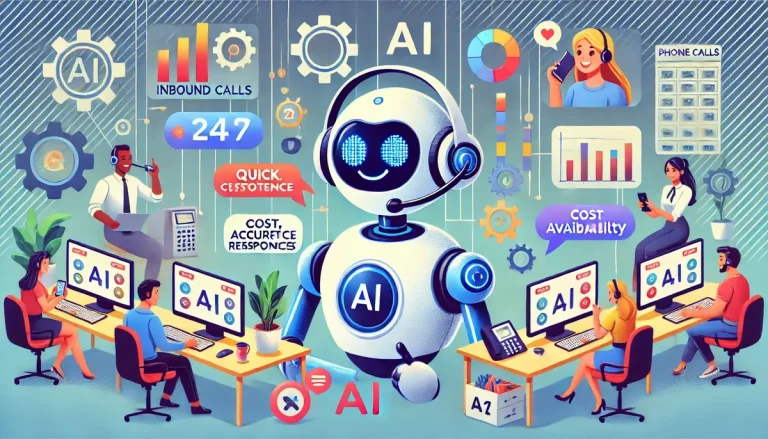The professional services sector is experiencing a seismic shift propelled by the integration of artificial intelligence (AI). According to recent statistics, the adoption of AI technologies in professional services is rapidly increasing, with a notable surge in investment across various industries including accounting, legal services, and public relations. This surge signifies a fundamental transformation in how businesses operate and serve their clients. In this article, we delve into AI’s pivotal role in professional services, exploring its potential benefits, implementation strategies, and key considerations for businesses aiming to thrive in today’s competitive landscape.
Key Takeaways:
- AI’s Potential Benefits: AI holds immense potential to enhance customer experience, streamline operations, and drive profitability in professional services.
- Alignment with Business Strategies: Effective utilization of AI requires alignment with overarching business strategies and objectives.
- Identifying Repetitive Tasks: Prioritizing repetitive tasks is pivotal for successful AI integration, encompassing functions like system monitoring, data analysis, and workflow automation.
- CEO Recognition: A significant proportion of CEOs recognize AI’s transformative potential, with many already implementing AI solutions across their operations.
- Meticulous Planning: Integrating AI into professional services requires meticulous planning, encompassing assessment of readiness, establishment of clear objectives, and allocation of appropriate resources.
Integration Strategies for AI in Professional Services
- Recognition of AI’s Potential: Professional services firms are increasingly recognizing AI’s transformative potential and actively incorporating it into various aspects of their operations. This recognition stems from the growing understanding that AI can revolutionize traditional workflows, offering unprecedented opportunities for efficiency gains and improved client outcomes. By embracing AI, firms can streamline processes, enhance decision-making capabilities, and ultimately, deliver higher value to clients.
- Investment Growth: McKinsey’s research underscores the growing momentum behind AI adoption in professional services. Businesses are significantly increasing their investment in AI technologies, recognizing them as strategic assets for competitive advantage and sustainable growth. This surge in investment reflects a broader acknowledgment of AI’s potential to drive innovation, improve operational efficiency, and unlock new revenue streams within the professional services sector.
- Generative AI: Generative AI is emerging as a pivotal tool for automation in professional services, facilitating tasks across various domains such as marketing, sales, and supply chain management. This AI subset empowers firms to generate content, designs, and insights autonomously, thereby reducing manual effort and accelerating decision-making processes. By harnessing generative AI capabilities, professional services firms can enhance productivity, creativity, and responsiveness to client needs, thereby gaining a competitive edge in the market.
Identifying AI Integration Areas
Versatility of AI
AI’s versatility offers professional services firms a wide range of opportunities to enhance customer experience, optimize operational processes, and drive profitability. From personalized client interactions to predictive analytics-driven insights, AI technologies can be deployed across multiple functions, including customer service, data analysis, and strategic planning. Leveraging AI’s versatility enables firms to adapt to evolving market dynamics, deliver tailored solutions, and stay ahead of the competition.
Customization
Customizing AI applications to align with unique business models and objectives is essential for maximizing impact in professional services. Each firm operates within a distinct context, characterized by specific client needs, industry dynamics, and organizational capabilities. By tailoring AI solutions to address these nuances, firms can unlock greater value, minimize implementation risks, and foster stronger alignment between technology initiatives and business objectives.
Targeting Repetitive Tasks
Starting with repetitive tasks, such as data processing and document management, is often an ideal starting point for AI integration efforts in professional services. These tasks typically involve high volumes of routine work, prone to human error and inefficiencies. By automating repetitive tasks through AI-driven solutions, firms can free up valuable human resources, reduce operational costs, and allocate talent to higher-value activities that require creativity, judgment, and strategic thinking.
Developing an AI Strategy
Comprehensive Approach
Crafting a comprehensive AI strategy involves assessing readiness, defining business objectives, and evaluating potential value across the organization. This approach requires firms to conduct a thorough analysis of their current capabilities, identify AI use cases that align with strategic goals, and develop a roadmap for implementation and scaling. By taking a holistic view of AI adoption, firms can ensure that technology investments are aligned with broader business priorities and generate tangible value over time.
Incremental Implementation
Incremental implementation and continuous evaluation enable iterative refinement of AI strategies in professional services. Rather than pursuing large-scale transformations, firms can adopt a phased approach to AI deployment, starting with low-risk, high-impact initiatives and gradually expanding their capabilities over time. This iterative approach allows firms to learn from experience, adapt to changing market conditions, and fine-tune AI solutions to meet evolving client needs effectively.
Critical Components
Addressing data quality, IT infrastructure, and talent acquisition are critical components of an effective AI strategy in professional services. Data serves as the lifeblood of AI systems, powering algorithms and enabling intelligent decision-making. Therefore, firms must invest in data governance processes, data integration tools, and data quality assurance mechanisms to ensure the reliability and accuracy of AI-driven insights. Additionally, firms need to establish robust IT infrastructure capable of supporting AI workloads, including cloud computing resources, scalable storage solutions, and cybersecurity protocols. Finally, talent acquisition is essential for building AI capabilities within the organization, requiring firms to recruit data scientists, machine learning engineers, and AI specialists with the necessary skills and expertise to drive successful AI implementations. By addressing these critical components, firms can create a solid foundation for AI adoption and realize the full potential of AI technologies in professional services.
Streamlining Administrative Processes
AI plays a crucial role in streamlining administrative processes within professional services firms by automating various repetitive tasks. Data entry, for example, often involves manually inputting information into databases or spreadsheets, a tedious and error-prone process. With AI, advanced algorithms can extract data from various sources, such as emails, forms, and invoices, and automatically input it into the appropriate systems. This not only saves time but also reduces the risk of human error, ensuring data accuracy and integrity.
Similarly, document analysis, another common administrative task, can be significantly enhanced with AI technology. Traditionally, professionals have had to manually review and analyze large volumes of documents, such as contracts, legal briefs, or financial reports. AI-powered document analysis tools utilize natural language processing (NLP) and machine learning algorithms to extract key information, identify relevant patterns or insights, and categorize documents based on predefined criteria. This automated analysis not only speeds up the process but also enhances accuracy and consistency, enabling professionals to make more informed decisions based on the extracted insights.
Expense management is yet another area where AI can streamline administrative processes. Traditionally, professionals have had to manually track and categorize expenses, reconcile receipts, and process reimbursement requests, a time-consuming and often cumbersome task. AI-powered expense management systems can automate much of this process by automatically categorizing expenses, flagging potential discrepancies or policy violations, and generating detailed expense reports. This not only reduces the administrative burden on employees but also improves compliance, accuracy, and transparency in expense management processes.
Enhancing Document Management
Document management is a critical aspect of professional services firms, where sensitive information such as client contracts, legal documents, or financial records must be securely stored, organized, and accessed as needed. AI-powered document management systems offer several advantages over traditional methods, including enhanced accuracy, security, and efficiency.
AI algorithms can automatically tag, classify, and organize documents based on their content, making it easier for professionals to locate relevant information quickly. For example, documents can be categorized by type, client, or project, allowing users to retrieve specific documents or sets of documents with a simple search query. This not only saves time but also reduces the risk of misplacing or losing important documents.
Furthermore, AI-powered document management systems enhance security by implementing advanced encryption techniques, access controls, and audit trails to protect sensitive information from unauthorized access or breaches. These systems can also detect and flag potential security threats, such as suspicious activities or anomalies in document access patterns, allowing administrators to take proactive measures to mitigate risks and safeguard sensitive data.
Additionally, AI technologies, such as optical character recognition (OCR) and intelligent data extraction, enable automated data extraction from scanned documents or images, further enhancing efficiency in document management processes. This eliminates the need for manual data entry and reduces errors, ensuring the accuracy and completeness of extracted information.
Empowering Data-Driven Decisions
Data-driven decision-making is essential for professional services firms to stay competitive and deliver value to clients. AI-powered predictive analytics empower professionals to make informed decisions based on data-driven insights, enabling proactive risk management, strategic planning, and performance optimization.
Predictive analytics algorithms leverage historical data, statistical models, and machine learning techniques to forecast future outcomes or trends, identify potential risks or opportunities, and recommend optimal courses of action. For example, in financial services, predictive analytics can be used to assess credit risk, detect fraudulent activities, or optimize investment portfolios. In legal services, predictive analytics can help predict case outcomes, assess litigation risks, or identify relevant precedents or case law.
By harnessing the power of predictive analytics, professionals can anticipate future trends, identify emerging risks or opportunities, and make proactive decisions to mitigate risks or capitalize on opportunities. This not only enhances decision-making accuracy but also enables firms to stay ahead of the curve and adapt to changing market dynamics more effectively.
Furthermore, predictive analytics can be integrated into various business processes and workflows, enabling real-time monitoring, alerting, and automated decision-making based on predefined rules or thresholds. This allows professionals to respond swiftly to changing conditions, minimize disruptions, and optimize resource allocation, thereby improving overall operational efficiency and performance.
AI-powered predictive analytics empower professionals to make data-driven decisions, enhance risk management practices, and drive strategic growth initiatives. By leveraging advanced analytics capabilities, professional services firms can gain a competitive edge, deliver value-added services to clients, and achieve sustainable growth in today’s dynamic business environment.
Overcoming Adoption Challenges
Challenges
Despite its transformative potential, AI adoption in professional services faces several challenges that organizations must address to fully realize its benefits.
- Data Quality: One of the primary challenges is ensuring the quality of data used to train and deploy AI models. Poor data quality, such as incomplete, inaccurate, or biased data, can undermine the effectiveness of AI applications and lead to unreliable outcomes. Organizations must invest in data quality assurance processes, data cleansing techniques, and robust data governance frameworks to mitigate these risks and ensure the reliability and integrity of AI-driven insights.
- Team Confidence: Another challenge is building confidence and trust among employees in AI technologies. Many professionals may feel apprehensive about AI replacing their roles or making decisions traditionally reserved for human judgment. Therefore, organizations must invest in change management initiatives, education, and training programs to help employees understand the benefits of AI, alleviate concerns, and foster a culture of collaboration between humans and machines.
- Expertise Gaps: AI adoption also faces challenges related to expertise gaps, particularly in terms of recruiting and retaining skilled talent with the necessary knowledge and expertise in AI technologies. Professionals with expertise in data science, machine learning, and AI development are in high demand, leading to talent shortages and fierce competition for skilled individuals. Organizations must invest in talent development programs, partnerships with educational institutions, and talent acquisition strategies to build a workforce capable of driving successful AI initiatives.
Addressing Ethical Considerations
In addition to technical challenges, organizations must also address ethical considerations associated with AI adoption. Bias mitigation, for example, is a critical issue in AI development, as algorithms may inadvertently perpetuate or amplify existing biases present in training data. Organizations must implement bias detection mechanisms, fairness assessments, and diversity initiatives to identify and mitigate biases in AI models and ensure equitable outcomes for all stakeholders.
Transparency is another important ethical consideration, as AI-driven decisions can often be perceived as opaque or difficult to interpret. Organizations must strive to make AI processes and decision-making transparent and understandable to stakeholders, providing explanations, justifications, and insights into how AI algorithms work and how decisions are made.
Upskilling Initiatives
To overcome adoption challenges and foster a culture of AI readiness, organizations must invest in upskilling initiatives and collaborative problem-solving approaches. Upskilling programs can provide employees with the necessary knowledge, skills, and competencies to leverage AI technologies effectively in their roles. This may include training in data analytics, machine learning, programming languages, and AI ethics.
Collaborative problem-solving involves engaging employees across different departments and levels of the organization in identifying challenges, brainstorming solutions, and co-creating AI-driven initiatives. By fostering a collaborative and inclusive culture, organizations can harness the collective intelligence and creativity of their workforce to overcome obstacles, drive innovation, and accelerate AI adoption.
Embracing AI for Sustainable Growth
AI represents a paradigm shift in professional services, offering unprecedented opportunities for efficiency, innovation, and client satisfaction. By strategically integrating AI and addressing adoption challenges, firms can position themselves for sustainable growth and competitive advantage in today’s rapidly evolving business landscape.
- Positioning for Growth: Strategic integration of AI involves aligning AI initiatives with organizational goals, identifying high-impact use cases, and developing a roadmap for implementation and scaling. By strategically deploying AI technologies in areas such as customer service, data analysis, and decision support, firms can enhance operational efficiency, improve client outcomes, and gain a competitive edge in the market.
- Training and Preparation: Finally, organizations must ensure that their teams are adequately trained and prepared to embrace AI technologies. This involves providing ongoing education, training, and professional development opportunities to equip employees with the skills and knowledge needed to leverage AI effectively in their roles. By investing in talent development and creating a culture of continuous learning, organizations can empower their workforce to harness the full potential of AI and drive sustainable growth and innovation in professional services.
In conclusion, the integration of AI in professional services offers immense potential for growth and efficiency. By aligning with business strategies, identifying integration areas, and developing comprehensive strategies, firms can leverage AI to streamline operations, improve decision-making processes, and enhance client satisfaction. Overcoming adoption challenges, such as data quality, team confidence, and expertise gaps, is crucial for successful AI implementation. Moreover, addressing ethical considerations, fostering transparency, and promoting diversity in AI development are essential for building trust and credibility in AI-driven solutions.
Embracing AI for sustainable growth represents a paradigm shift in the professional services sector, offering unprecedented opportunities for innovation and competitive advantage. By strategically integrating AI and investing in upskilling initiatives, firms can position themselves at the forefront of technological innovation and drive long-term success in today’s dynamic business environment. Ultimately, by embracing AI as a strategic asset and enabler of growth, professional services firms can unlock new opportunities, optimize performance, and deliver value-added services to clients, thereby solidifying their position as leaders in the industry.







